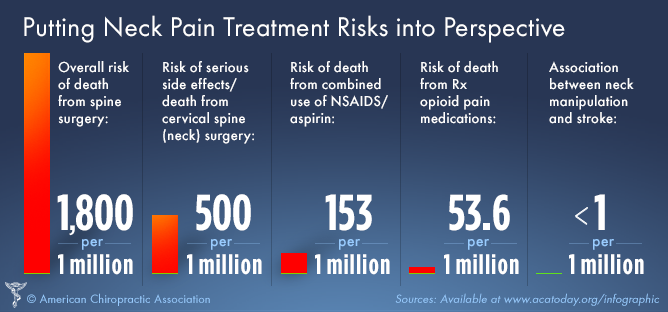Support Your Back Health By Recognizing Just How Your Nutritional Selections Can Affect Your Discomfort Degrees-- Find Out Which Foods To Choose For Relief And Which To Avoid
Support Your Back Health By Recognizing Just How Your Nutritional Selections Can Affect Your Discomfort Degrees-- Find Out Which Foods To Choose For Relief And Which To Avoid
Blog Article
Web Content By-Locklear Jordan
When it comes to managing your pain in the back, the food options you make can substantially impact how you feel every day. Picture being able to reduce your discomfort merely by adjusting what you consume. By understanding the role of nutrition in back pain administration and recognizing which foods to integrate or steer clear of, you can take proactive steps in the direction of a healthier and a lot more comfortable way of life. The connection between nutrition and back wellness is more profound than you might understand-- let's check out just how specific foods can either relieve or worsen your pain in the back.
Significance of Nourishment in Neck And Back Pain
Nutrition plays an important function in taking care of neck and back pain. Your diet regimen can dramatically affect swelling degrees and general discomfort levels in your back. Taking in a well balanced diet regimen rich in nutrients like vitamins D and K, calcium, magnesium, and omega-3 fatty acids can help in reducing swelling and strengthen bones, which are essential for back health and wellness.
In addition, keeping a healthy and balanced weight through appropriate nutrition can alleviate stress on your back, decreasing the danger of pain in the back.
Moreover, certain nutrients like anti-oxidants located in vegetables and fruits can assist deal with oxidative anxiety and promote healing in the body, including the back muscular tissues and back.
On the other hand, consuming too much quantities of refined foods, sugary drinks, and undesirable fats can contribute to inflammation and weight gain, intensifying neck and back pain.
Foods to Consume for Back Wellness
To support a healthy and balanced back, including nutrient-rich foods right into your daily meals is key. Consisting of foods high in anti-oxidants like berries, spinach, and kale can help reduce swelling in your back, alleviating pain and pain. Omega-3 fatty acids found in fatty fish such as salmon and mackerel have anti-inflammatory residential properties that can benefit your back health and wellness.
Additionally, eating nuts and seeds like almonds, walnuts, and chia seeds provides vital nutrients like magnesium and vitamin E, which support muscular tissue function and minimize oxidative stress. Including lean healthy proteins such as chicken, turkey, and tofu can assist in muscular tissue repair service and maintenance, promoting a strong back.
have a peek at this website forget to consist of dairy or strengthened plant-based options for calcium to sustain bone health and wellness. Finally, moisten with https://chiropractors-near-me05161.tkzblog.com/31072307/mapping-the-background-of-chiropractic-care-medication-from-standard-approaches-to-contemporary-practices of water to maintain your spinal discs moisturized and working ideally. By consisting of these nutrient-dense foods in your diet, you can nourish your back and support general back wellness.
Foods to Avoid for Back Pain
Opt for avoiding processed foods high in sugarcoated and trans fats when looking for remedy for neck and back pain. These types of foods can contribute to swelling in the body, which might aggravate neck and back pain. Say no to sugary treats like candy, breads, and sweet beverages, in addition to junk food products like burgers, french fries, and fried chicken that are often filled with trans fats.
Additionally, steer clear of foods including high degrees of refined carbs, such as white bread, pasta, and breads, as they can increase blood glucose levels and possibly intensify inflammation in the body.
It's also a good idea to limit your consumption of foods high in hydrogenated fats, like red meat and full-fat dairy products, as they can add to swelling. Refined foods like deli meats, chips, and packaged treats are usually high in hydrogenated fats and should be eaten in small amounts.
Conclusion
Finally, paying attention to your diet and making wise food options can have a significant effect on managing back pain. By integrating nutrient-rich foods like berries, fatty fish, nuts, and lean healthy proteins, and avoiding refined and sweet products, you can help reduce swelling and support overall back wellness. Bear in mind, what you eat plays a crucial duty in exactly how you feel, so make certain to prioritize your nourishment for a healthier back.
